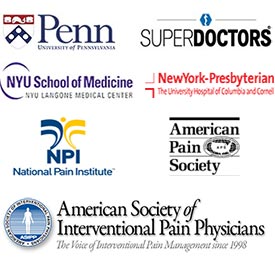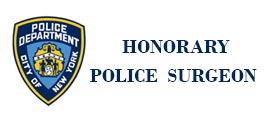Radial Styloid (DeQuervain’s) Tenosynovitis Specialist Doctors NYC
At Manhattan Pain and Sports Associates you’ll receive the DeQuervain’s syndrome (radial styloid tenosynovitis) diagnosis, pain management, and doctor’s care you need to reduce or eliminate your radial styloid tenosynovitis pain. Because when you’re in pain — whether it’s from an accident, sporting injury, age, texting, or ailment — you want relief quickly. Appropriate and targeted DeQuervain’s syndrome pain management and treatment starts with a proper diagnosis from your NYC pain management specialist.
Radial styloid tenosynovitis is a very painful condition that affects the tendons in your wrist that are nearest to your thumb on each hand. You’d be better off trying some of the more colloquial names if you need to talk about it, such as:
- Texting thumb
- BlackBerry thumb
- Washerwoman’s sprain
- Gamer’s thumb
- Mother’s wrist
- Mommy thumb
The names are fairly self-evident as to what leads to DeQuervain’s disease. And your NYC pain management specialist understands the pain you’re feeling when you tell him your symptoms. A gamer’s thumb most likely hurts the most when you bend your wrist, try to make a fist or try to shoot the bad guys in your favorite video game.
It’s No Joke
While it may seem obvious that you’ve been overusing and over-extending your thumb in repetitive motions, it’s no joke when you develop a texting thumb. DeQuervain’s tenosynovitis can cause you difficulty doing more than just the main activity that got you here; it can prevent you from lifting up your newborn, gardening or playing golf.
You shouldn’t wait to get treatment from a pain management doctor — the pain can spread to the rest of your arm. Without treatment, the inflammation causing the pain spreads through your thumb and then up your arm. When you feel any of the following symptoms, seek treatment as soon as possible from your Manhattan pain management specialist:
- Swelling at the base of one or both of your thumbs
- Pain accompanying the swelling
- Stiffness in your thumb when you try to grasp or pinch something with your thumb
- A popping noise when you move your thumb
The Texting Generation
Just as the name suggests, texting all the time can put you at a high risk of developing DeQuervain’s tenosynovitis. Other risk factors include:
- Your age. The group highest at risk is between the ages of 30 and 50.
- Being female, because it’s just more common in women
- Taking care of a baby, which requires you to apply continuous pressure on your thumb, using it for leverage as you lift your child repeatedly day and night
- Repetitive motions at your job or during hobbies that you play every day, such as video games
Get Treatment Early For DeQuervain’s Syndrome and Radial Styloid Tenosynovitis
The earlier you get your wrist treated, the better chance you have of preventing a reoccurrence. The primary goal of treatment is to reduce the inflammation that’s causing the pressure on the nerves in your wrist. Rest, ice and over-the-counter anti-inflammatories usually make a big difference — if you catch it early.
To avoid surgery, you can take other steps to reduce your pain and allow your wrist to heal. Consider:
- Stopping the activities that caused the problem
- Immobilizing your wrist and your thumb with a splint or brace to allow your tendons to rest without putting you completely out of commission
- Applying ice to the area as much as possible
- Avoiding repetitive thumb movements at all costs while you’re healing
Get the Pain Relief You Need
Your DeQuervain’s syndrome pain management doctor’s goal is to get you back to your normal routine with minimal downtime. After your radial styloid tenosynovitis diagnosis is confirmed, your doctor begins your pain management and treatment plan with the most conservative pain relief treatment. You’ll always receive non-invasive pain relief before your doctor turns to more invasive procedures like surgery.
Manhattan Pain and Sports Associates
51 East 25th St, 4th Floor, Ste B
New York, NY 10010
(212) 533-3954



